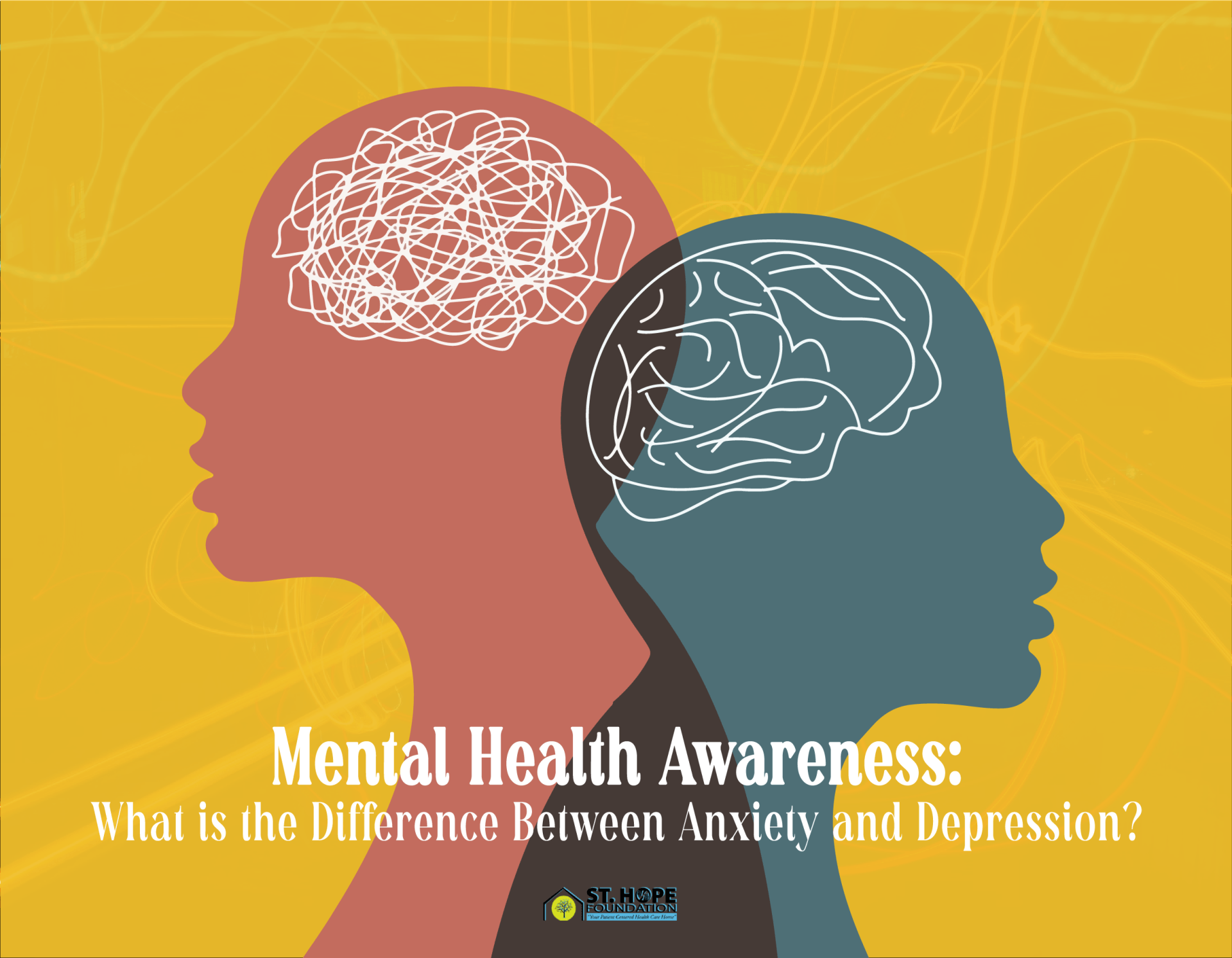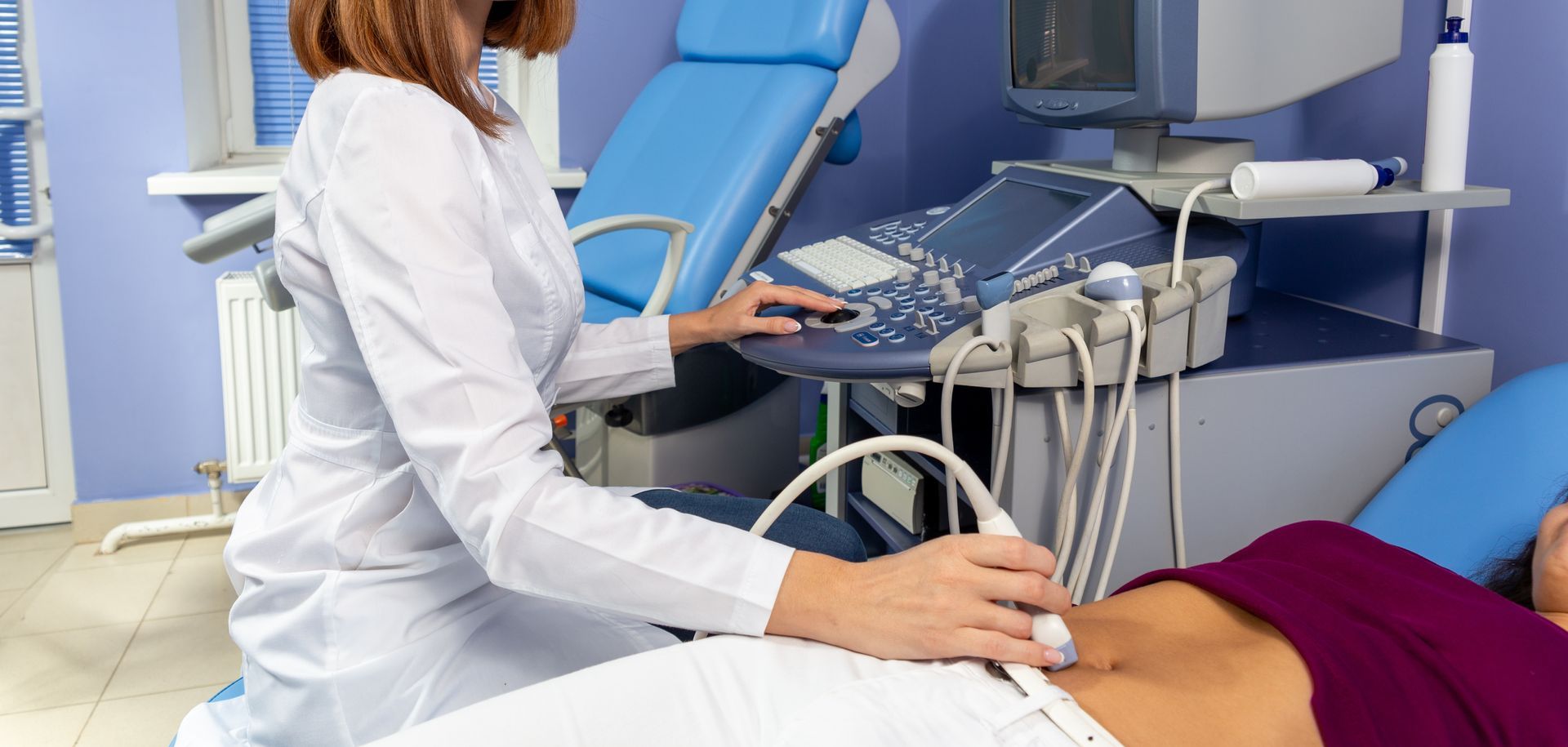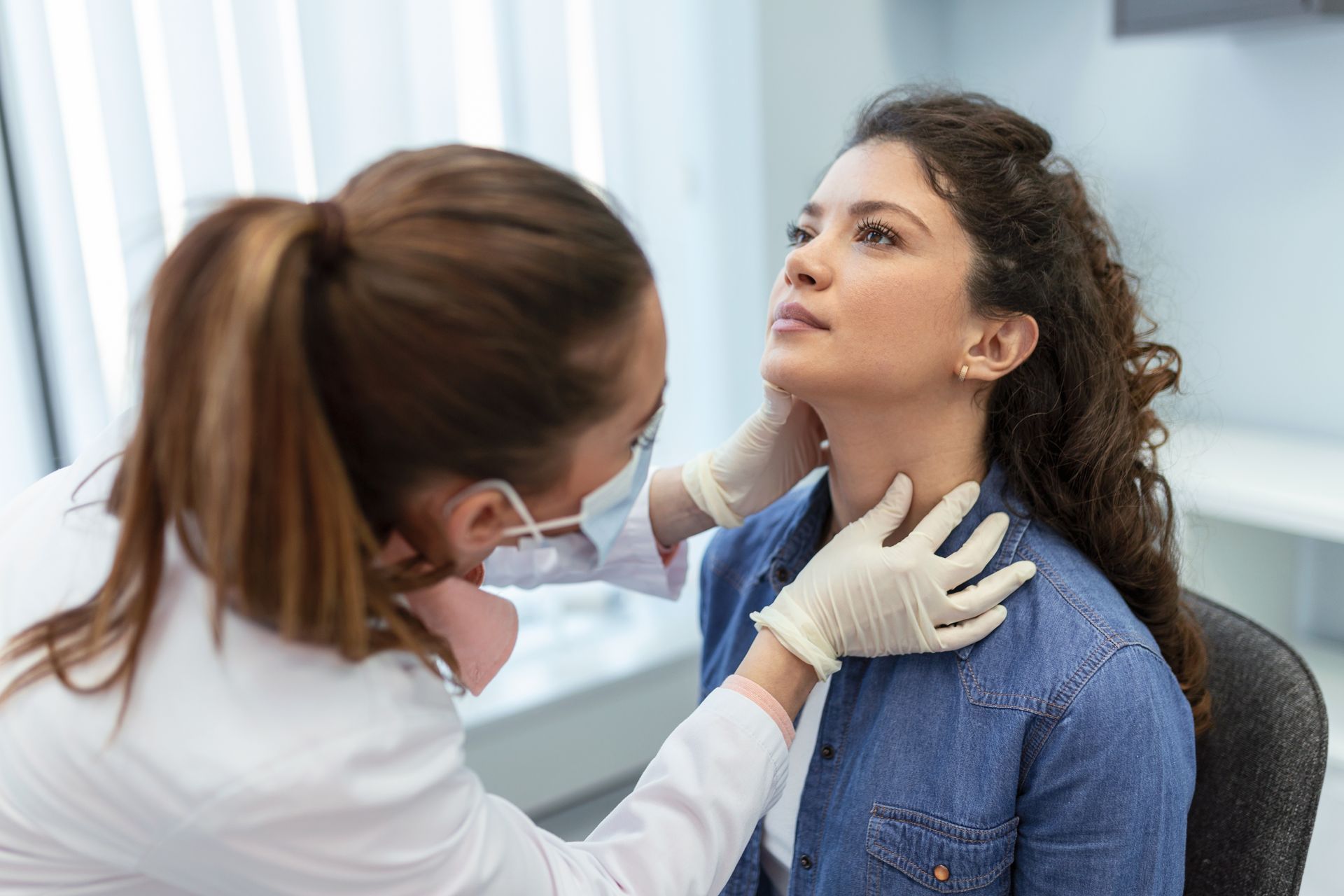Recent Posts
Mental Health Awareness: What is the Difference Between Anxiety and Depression?

Mental health conditions and mood disorders like anxiety and depression affect millions of people worldwide. Even if a person hasn’t been diagnosed with depression or anxiety, they can still experience symptoms from time to time. It’s normal to feel sad or nervous but once those feelings grow to be a debilitating daily struggle, it may be time to see a licensed mental health specialist.
The first step to knowing if you or someone you love is suffering from anxiety or depression is understanding the differences and symptoms of each, and when to seek treatment and professional help.
Is There a Difference Between Anxiety and Depression?
Deciphering what’s anxiety and what’s depression can be tough because the two share overlapping symptoms like changes in appetite, fatigue and difficulty concentrating. However, there are clear differences between the two, such as excessive worrying (anxiety) and thoughts of self-harm or suicide (depression). If you have thoughts of suicide, it is critical that you seek help by calling or texting the 988 Suicide Crisis Lifeline.
It is possible that a person diagnosed with a depressive disorder could also suffer from anxiety. While they are different, they can overlap and amplify a person’s mental health challenges.
What Is Anxiety?
Anxiety is the body’s natural reaction to an overwhelming amount of stress or fear. Stress is an instinctive response to potential danger or a threat and can trigger a fight-or-flight response. A natural level of anxiety is normal for everyone because it can help you stay alert — especially if you are in imminent danger.
While anxiety is the general term for a stress disorder, there are actually five distinct types of anxiety:
- Generalized anxiety disorder
- Social anxiety disorder
- Panic disorder
- Separation anxiety
- Phobias
What Are the Symptoms of Anxiety?
- Panic attacks
- Insomnia
- Chest pain
- Nausea
- Isolation
- Obsessive thought patterns
- Sweating
- Appetite changes
- Restlessness
- Irritability
- Trouble concentrating
What Is Depression?
Clinical depression is when feelings of extreme sadness or apathy last days, weeks, months or even years. Depression can lead to feelings of worthlessness or hopelessness and tends to interfere with a person’s daily life and routine. These feelings can persist until necessary treatment and/or medication can be administered.
Similar to anxiety, there are also different types of depression disorders.
- Major depressive disorder (MDD)
- Atypical depression
- Psychotic depression
- Postnatal depression (PND) or postpartum depression (PPD)
- Seasonal affective disorder (SAD)
What Are the Symptoms of Depression?
- Sadness, hopelessness or anxiousness
- Loss of interest
- Uncontrollable crying episodes
- Feeling helpless
- Sleeping too little or too much
- Appetite changes
- Trouble concentrating
- Extreme fatigue (even after sleeping)
- Difficulty remembering things or making decisions
- Restlessness
- Thoughts of self-harm or suicide
What Are the Treatment Options for Anxiety and Depression?
Since the symptoms are so similar, differentiating between depression and anxiety can be difficult. That's why it’s important to see a licensed mental health professional like a psychiatrist. During your appointment, be sure to disclose every symptom you have been experiencing. Don’t leave anything out. A single symptom may be a deciding factor in your diagnosis.
Talk therapy and medications are the two key methods used by mental health specialists to treat anxiety and depression.
Antidepressants change the balance of chemicals in the brain to elevate mood and manage symptoms of depression (and sometimes anxiety). Anti-anxiety drugs and beta-blockers are used to reduce and treat anxiety symptoms.
Don’t Be Afraid to Seek the Help You Need
You deserve to be happy and comfortable with your life. If feelings of depression or anxiety have been interfering with your day-to-day routine, our compassionate team at St. Hope Foundation is here to help. We offer behavioral health services to patients who have chronic mental health conditions or illnesses.
Our empathetic and licensed Houston psychiatrist is trained to guide you through a healing, personalized treatment plan. Your mental health matters to us at St. Hope and we are here to help you manage and overcome your challenges.
Contact us online or give us a call at (713) 778-1300 to schedule an appointment today.









